Car parks, churches, even former battleships have all been repurposed as party destinations over the last few years: some have been unmitigated successes, others less so. Ahead of our warehouse party at Great Suffolk Street 17 October, Defected's Ben Lovett explores the clubland’s obsession with finding ever more outlandish places to dance in this extensive feature.
It has been asked a lot this summer – is clubland in peril? The Association of Licensed Multiple Retailers (ALMR), which represents venues up and down the UK, has sparked much of the conjecture; its report this August confirming a huge decline in the number of clubs over recent years. In 2005, according to the ALMR, there were 3,144 clubs; today, there are only 1,733. ALMR’s CEO Katie Nicholls has commented that in some local areas clubs “are gone for good and we’re never going to get them back.”
So what on earth has happened? Quite a lot really. Changes to licensing laws are a major factor. Where once pubs closed at 11pm and people shuffled on to a club to continue their merriment, these days there are free-entry, late-open bars peddling everything from cheap drinks to uptempo dance music. Customers have started moving elsewhere. Traditional clubs are facing tough economic realities, and this against a backdrop of recent recession.
At the same time, technological revolution is playing its part. Writer, broadcaster and DJ Dave Haslam argues that advances in technology have provided us with a far greater (and sometimes cheaper) sweep of entertainment options beyond straightforward clubbing – be that sofa raving via Boiler Room, live festival and club streams or radio podcasts. The list does go on. Haslam also argues that the introduction of university tuition fees in the UK has curtailed some of the burgeoning student population’s instinct to party 24-7. For so many reasons, our social habits are changing....
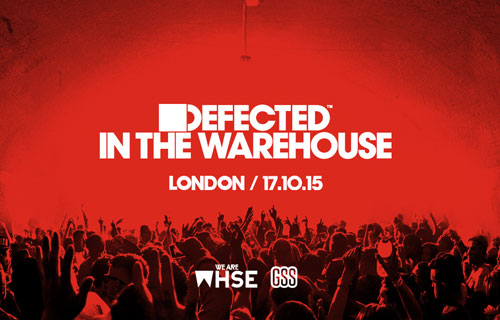
At the end of this month, Defected In The House channels its considerable house energy into a party at Dickens World in Chatham, Kent. The tourist attraction, themed around illustrious Victorian novelist Charles Dickens, should add suitably moody and atmospheric weight to the 4-4 supplied by guest DJs Oliver Dollar, Sam Divine, Sonny Fodera and Simon Dunmore.
The one-off Halloween rendezvous, 31 October, is preceded by a tie-up with Strictly Rhythm at the Great Suffolk Street warehouse in London, 17 October. Defected’s first ever UK ‘warehouse’ rave is part of We Are FSTVL’s multi-event warehouse season We Are WHSE – a season shaking Great Suffolk Street from 10 October to 30 January, 2015, and featuring Oliver Heldens, Amine Edge & Dance, Matt ‘Jam’ Lamont, Geddes, Paul Van Dyk, Sven Vath and Guy Gerber to name but a few. There will have been few more significant moves away from the conventional dancefloor this year.
Will Harold, Director of innovative club music promoter London Warehouse Events (LWE), acknowledges the financial and legislative pressures promoters are under in 2015. “There are big challenges” he opens. “Licensing has become particularly tight. Punters don’t always see the effect of things like security, for example. Before it was one security staff for every 75 people, now it’s one for every 50. Costs go up. And in these competitive times, when dance music is huge everywhere, so do DJ fees. Tighter regulations and a competitive marketplace start to squeeze the margins.”
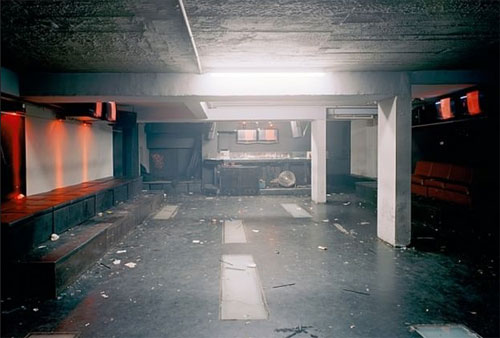
That said could clubs be doing more to make their spaces engaging whatever government, economy, technology or society throws at them? Harold seems to think so: “Clubs have been closing, yes, but I feel that’s honestly down to good reasons. I mean some of these spaces just haven’t moved with the times; they’re not up-to-date. Therefore, in a scene that’s very competitive they’re going to struggle. Look elsewhere at clubs like Ministry, Fabric and The Hydra (the latter at London’s Studio Spaces E1); they have good business models and great ideas to keep themselves out front.”
Harold has serious experience where promoting at UK clubland’s noisy frontline is concerned. He started out at Nottingham’s The Bomb, rising quickly from flyer boy to lead booker. Stealth, also within the city, followed; then global dance brand Renaissance. Since those days Harold has worked for Fabric and its short-lived sister venue Matter, and now directs LWE. Part of a wider creative hub, A Man About A Dog, Harold’s latest enterprise is shaking up club promotion on a truly unprecedented scale.
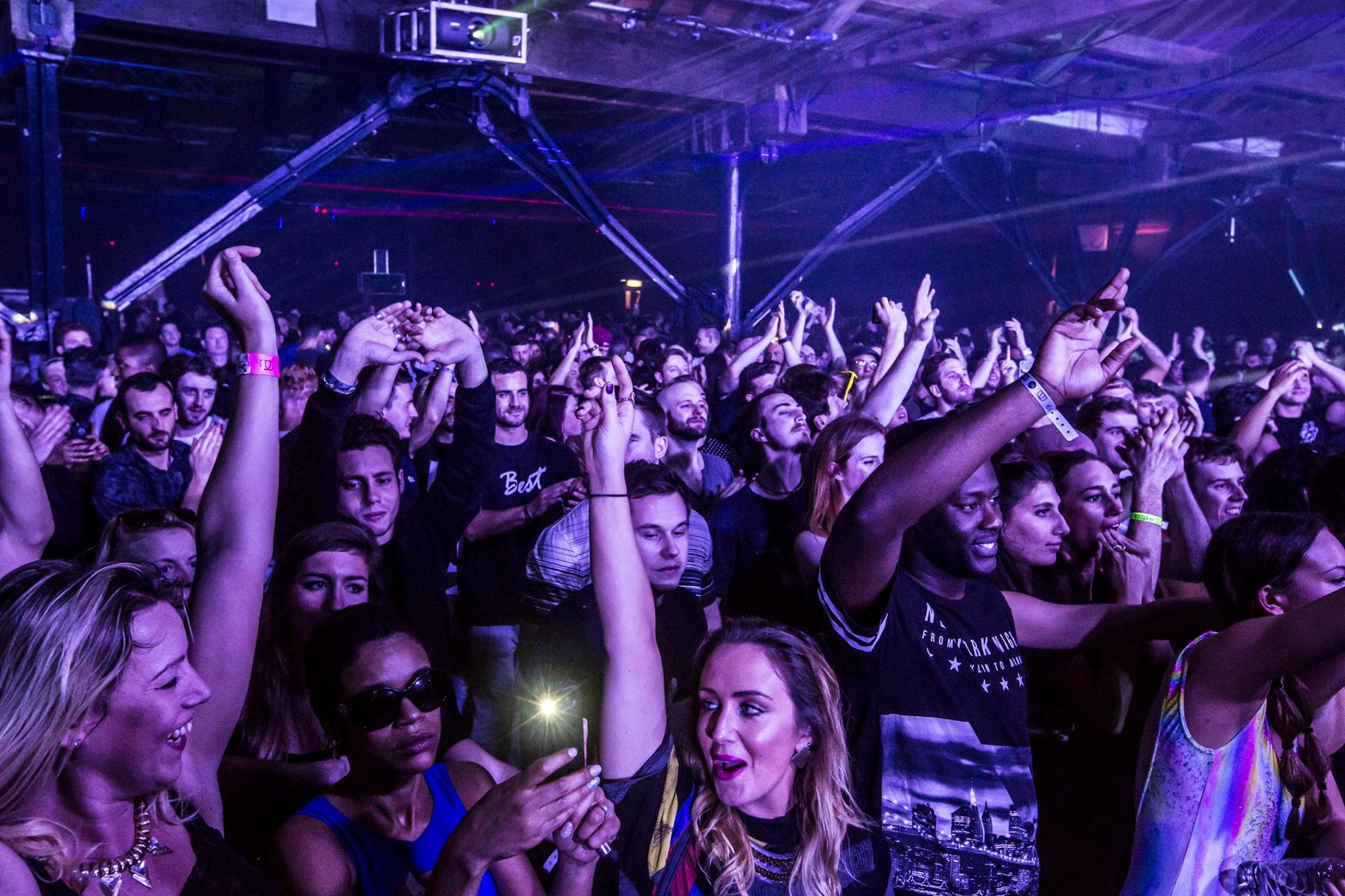
Since its opening in 2014 the major events have continued to rumble most impressively – everything from that New Year’s Day Grand Opening featuring Anja Schneider and Seth Troxler, and Halloween thrills with Drumcode to those epic LEAF (London Electronic Arts Festival) celebrations this March, backed by Tale Of Us, Sasha, DJ Harvey and Rob Da Bank, Ibiza fave ENTER in April and Troxler’s gleaming Acid Future little over two months ago. “We’ve had a phenomenal two years, and Tobacco Dock is well established now as the home of big, dynamic shows” Harold beams. “We’ve taken our time to really develop this unique structure but there’s no sitting still. As soon as one party is done people are immediately asking about where the next venues are going to be!”
So what exactly is this creative rejection of the archetypal Saturday night dancefloor doing for LWE and, for that matter, clubland? “Put it this way, I spent 10 years promoting Saturday club nights which had a very similar model to a lot of other Saturday nights” Harold recounts. “We were booking similar artists to everyone else – from a DJ’s point of view if there’s nothing to differentiate two nights then money will become the standout factor. If you’re entering a pissing contest for artists then you’re not being terribly creative and over time you’ll struggle.”
The migration away from traditional clubs is also taking ravers to festivals, Haslam points out. Here, particularly during the summer months, ravers can absorb a concentrated dose of electronic music; it’s the same with Ibiza. Unlike the Nineties and mid-Noughties, people have a wide array of options beyond their local nightclub these days. However, Harold suggests that even the festival landscape is in danger of becoming sterile. “Don’t get me wrong, there are some amazing, innovative festivals out there now” he urges. “But it’s become more of a level playing field. Take London, for example, where the festival model for organisers is incredibly similar –you’re basically going to be using one of the city’s parks, or fields, so to standout is harder.”
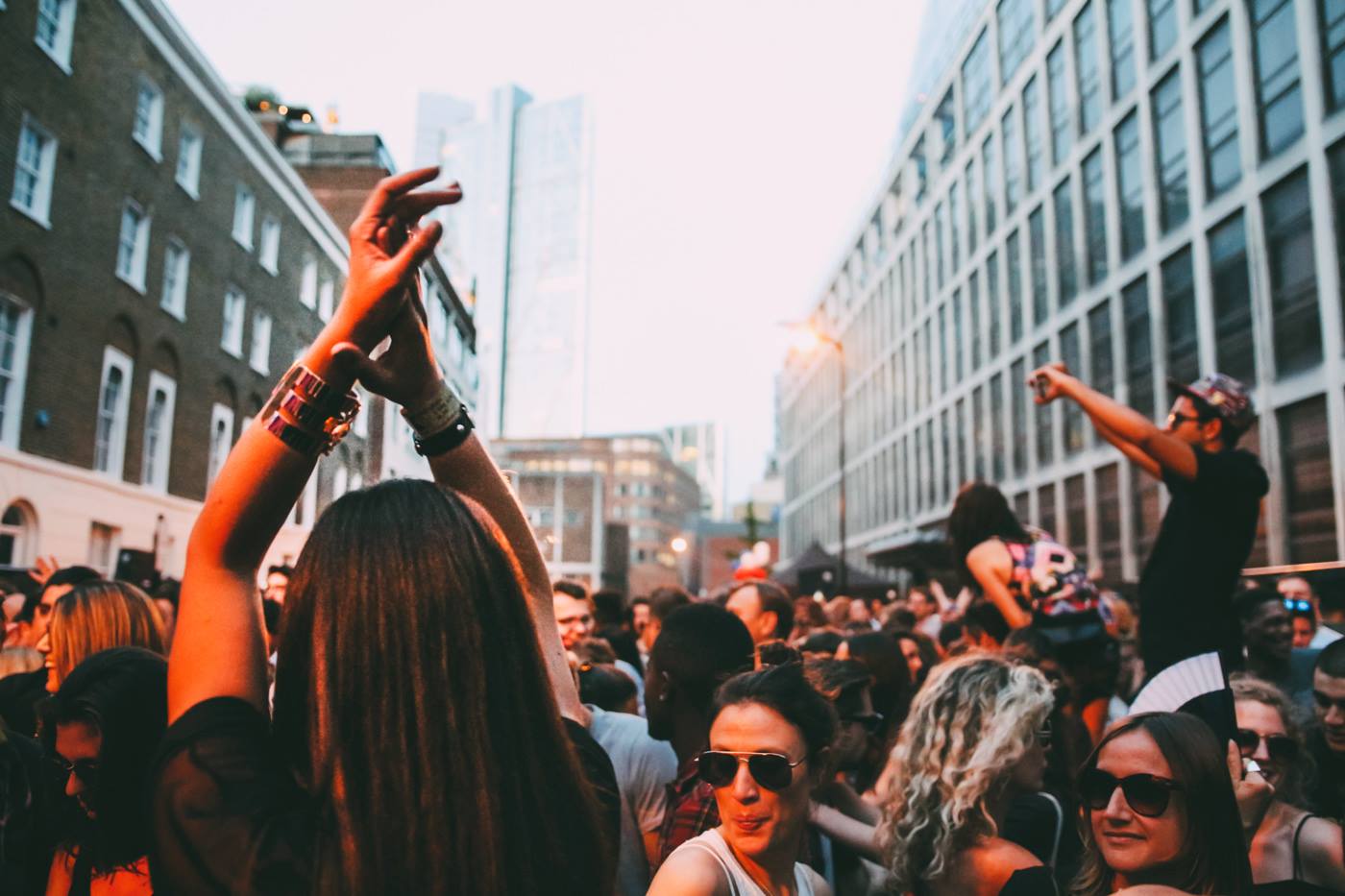
Lohan Presencer, CEO of Ministry of Sound, told the BBC in August that UK clubbing is in a “challenging place” this year. But that is not to say it is in trouble; far from it. “I don’t think the number of people going clubbing at the weekend is any different to where it was 20 years ago, but I think they are going to different places” Presencer added.
The emphasis is on ‘different’. Liverpool-based promoters Freeze have been pushing boundaries by hosting events in cathedrals, churches bombed out during World War 2 and even the Williamson Tunnels – an English Heritage-protected labyrinth of underground tunnels built, randomly, by eccentric 19th century philanthropist Joseph Williamson. Freeze is 10 this year and still going strong. In Leeds and Manchester, meanwhile, Hugo Monypenny has built a name for himself via house and techno night Selective Hearing, enticing the likes of Ben Klock and Robert Hood to spaces such as garages, industrial estates and disused furniture warehouses. “We moved away from running nights in the standard club settings and instead utilise different spaces” Monypenny explains. “The joy of it is going to a space that you would never expect to go and dance in. The big clubs aren’t as much fun for me because they are so regimented and there are so many rules. People are drawn away from the big events because there is no intimacy there.”
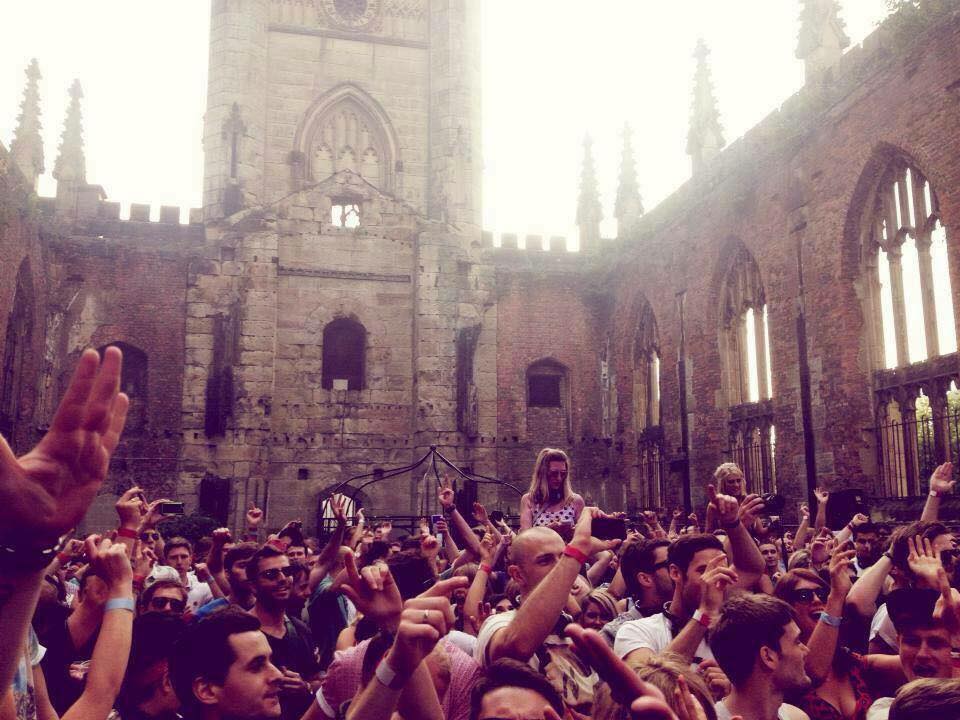
There is evidence of the same trend overseas. Renowned label and collective Innervisions, helmed by Dixon and Ame, is generating plenty of interest by promoting radical party concept Lost In A Moment. The concept, so far, has proven both inspirational and financially stressful. Innervisions’ goal is to throw events in venues never before used for clubbing, cutting out any reliance on third-party clubs or promoters. It’s a bold move, which has prompted some failures. Parties planned in Amsterdam and Barcelona this summer were cancelled late in the day owing to local government interference. A party prior to that in Naples turned out well but, miraculously so, considering issues with sound systems, stages and local mafia.
Nevertheless, Lost In A Moment appears to be on the up. One of the last events, at medieval castle Burg Rabenstein just south of Berlin, ran smoothly, performers KiNK, Gerd Janson, Marcus Worgull, Ame and Dixon taking full advantage of their unique setting to deliver a truly memorable dancefloor experience. This was followed by another buoyant medieval castle Chateau de Vincennes in Paris and then Lost In A Moment’s epic UK debut last month (produced by The Hydra) on Osea Island, a small island in Essex’s River Blackwater estuary home to a vibrant community of photographers, painters and philosophers. Worgull, Ame and Dixon once again conjured magic.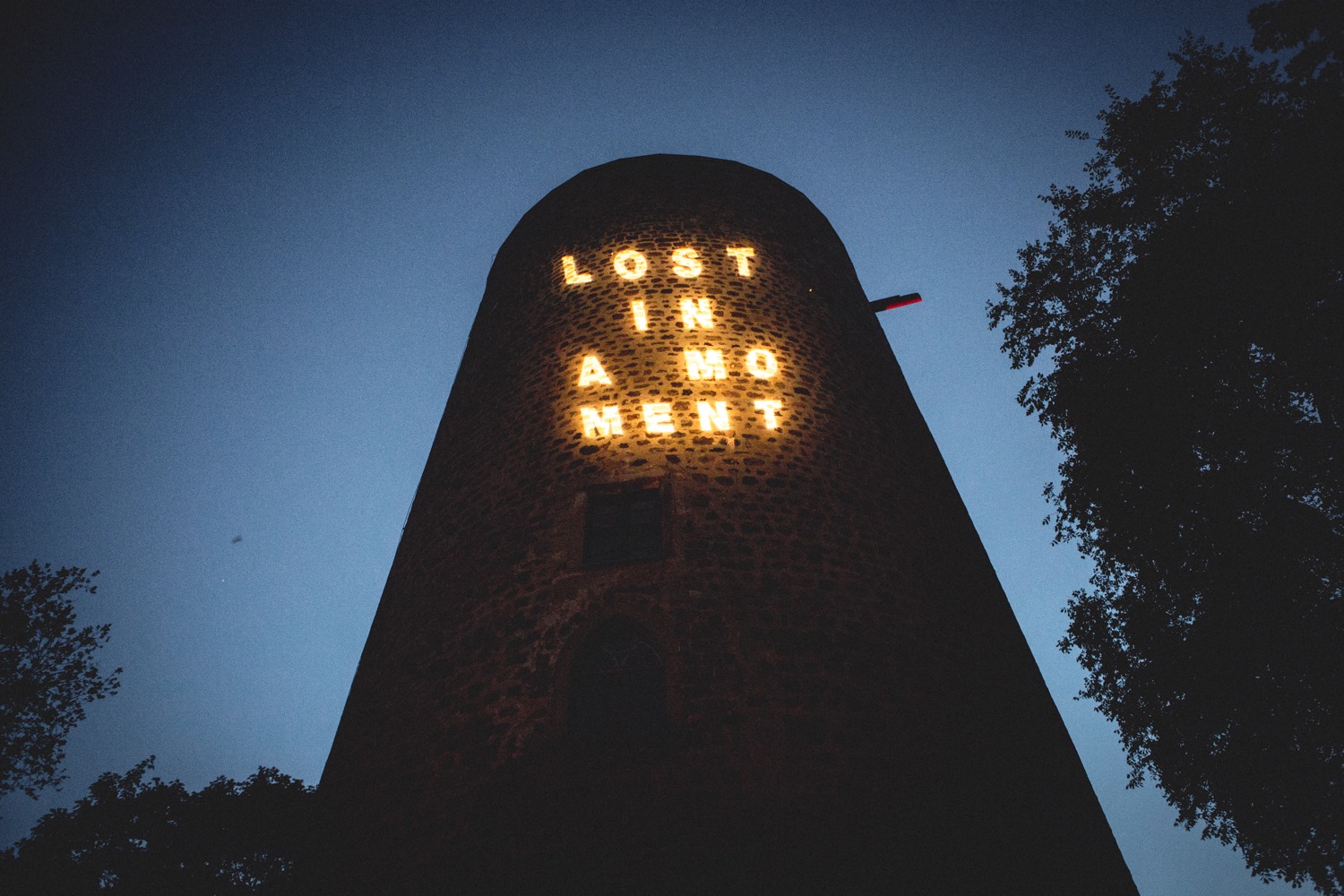
Lost In A Moment continues to operate at a loss, reportedly. But with a rising groundswell of fan support, and with Innervisions’ unwavering commitment to land brave new experiences that will move the club scene on rather than bolster what is already established, the outlook is promising. “Lost In A Moment 2015 is completed” Dixon posted on his Facebook page a few days ago. “After a rocky start we spend some mesmerizing days and nights in Berlin, Paris and London. For next year, some contracts are already being signed. We are adding more: cities, adventures, little wonders.... See us come back.”
According to the ALMR, last year the venues it represents “generated 37,000 new jobs with over 80% of these for 18-24-year-olds.” There are concerns within the nightclub industry that the current rate of venue closures will have a negative impact on UK youth employment. Katie Nicholls remarks that updates to local planning laws, particularly those with regards to noise pollution where pre-existing venues and new, nearby residential properties are concerned, are a major problem – new homeowners seemingly prioritised. It follows that in our major cities, property developers, planners and councils are furiously chasing down profits by fast-tracking retail and apartment block developments at the expense of long-running music spaces.
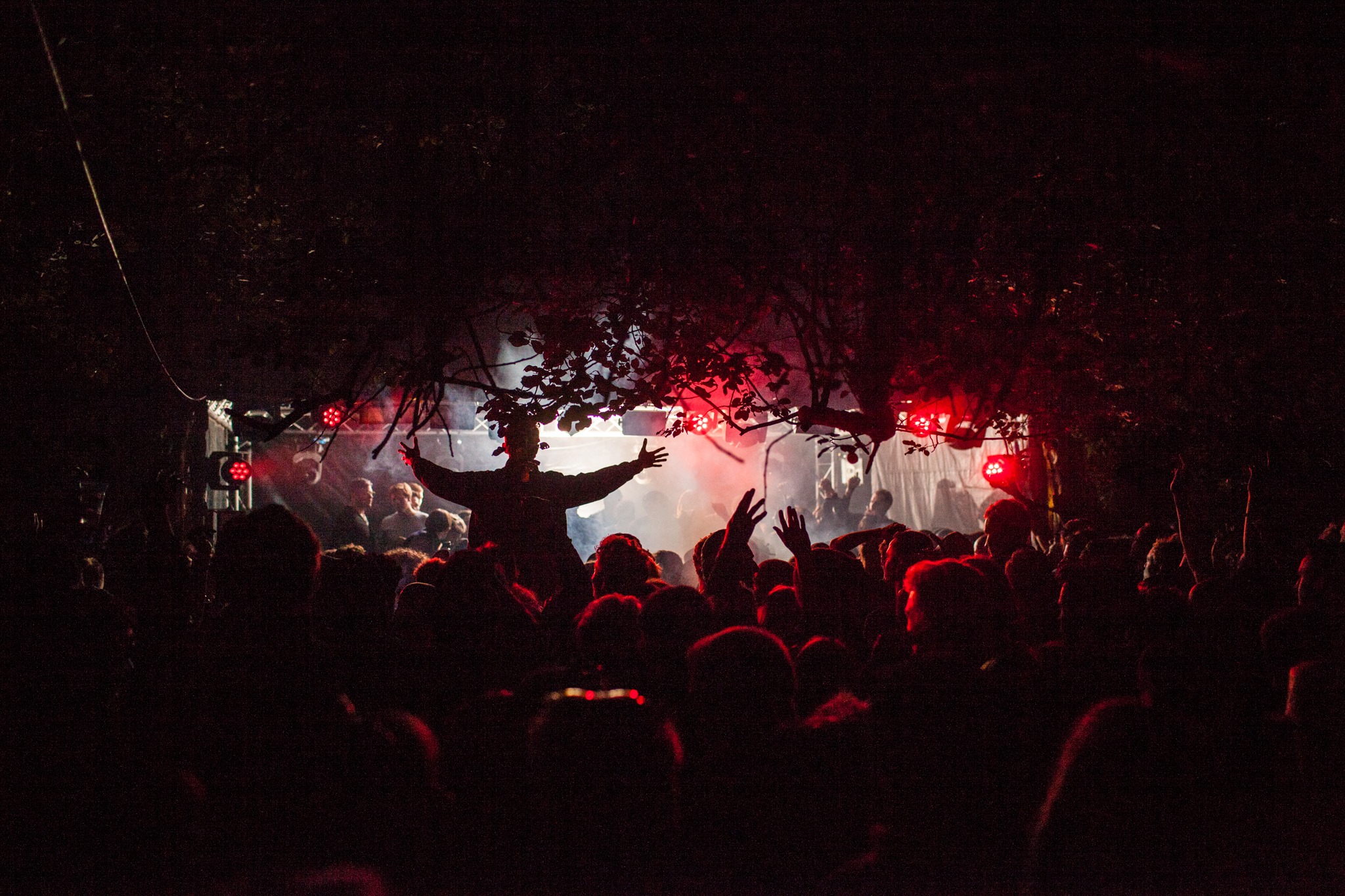
And yet great progress is being made in the clubbing arena. Interestingly, the ALMR’s data doesn’t drill down to those venues forced to close because they’re no longer financially sound and those that are successful but have closed for other reasons. Regardless, there is every sign that UK promoters are starting to adapt by finding new ways to enthral the dancing masses. We’re back to Harold, who proudly cites “phenomenal” 100% year-on-year growth for LWE.
Looking ahead Harold’s team, who run events at Tobacco Dock, have several exciting announcements lined up for 2016. “When we started promoting our first event at Tobacco Dock we sold 3,000 tickets on the announcement of the venue alone” he says. “We love what we do and can’t wait for what’s coming next. We’re taking these unique, amazing structures and properly producing shows within them...really transforming spaces and setting a scene. We’re can be really creative and deliver experiences like never before. That’s a great, great thing.”
For Haslam, some of the bigger, more established clubs may well be suffering but that disintegration of the mainstream status quo should prompt thrilling revolution. The clubbing landscape is definitely shifting but this shouldn’t be a cause for doom and gloom-mongering. Change can be positive, as recent reports from London Docklands, Osea Island and beyond appear to indicate. Far from hitting the final pages of a remarkable 25 year story, UK clubland is simply starting a new chapter. What a chapter that’s shaping up to be....
Words: Ben Lovett
Defected In The House is at Great Suffolk St. Warehouse, London Saturday 17 October - full line-up and tickets



